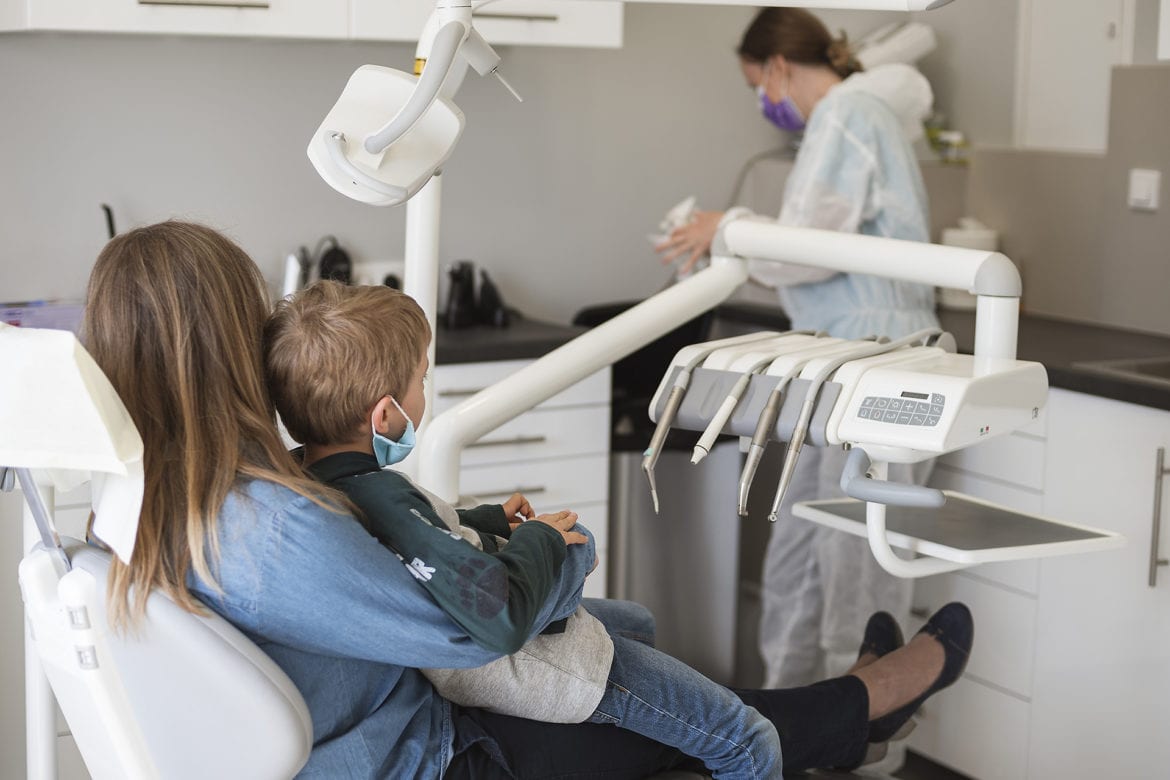It’s no secret that COVID-19 has changed the way we live. Our daily schedules have been disrupted, the stress we’re experiencing is very real, and there doesn’t seem to be an end in sight quite yet. These changes have taken a toll on us both emotionally and physically, and I’ve seen this firsthand with my patients.
Recently there was an article posted highlighting the uptick in tooth fractures during coronavirus. I can tell you that this is accurate, and I have seen many cases where stress has caused damage to patients’ mouths, including cracked and broken teeth.
Cases of tooth trauma due to stress increased at the very beginning of COVID-19 in April and May then tapered off a bit over the summer. However, cases are on the rise again with kids going back to school and parents working to keep them focused while struggling to manage their own workload.
Cracked Teeth from Stress
We’ve had a lot of patients coming in with general pain on all teeth rather than a specific area. Most of these patients don’t have any signs of tooth decay, which leads us to believe they’re clenching and grinding their teeth at night, during the day, or both. Typically, if we think tooth grinding and jaw clenching is the case, we’ll perform a short test to determine what area exactly is sore and hypersensitive.
I saw a patient who said just one tooth was killing him. After careful determination, we decided to extract that one tooth. The moment I set it on the tray after taking it out, it fell apart in two clear pieces! The tooth was causing him so much pain due to a microscopic fissure in the tooth, resulting in it breaking in half upon extraction.
This is just one case of a cracked tooth that I’ve seen in patients who are experiencing tooth trauma due to stress. Sometimes the cracks are not visible with the naked eye, as demonstrated by the above patient, but sometimes we do see visible parts of the teeth broken off. Whatever the case may be, we work diligently with these patients to restore their teeth through various procedures.
Tooth Pain from Clenching and Grinding
I saw another patient whose teeth hurt all on one side, but I couldn’t find any signs of tooth decay. She explained that the pain was worse in the morning, which is a sign of clenching and grinding while sleeping. There’s a web of ligaments underneath that hold your teeth, and when you clench your jaw all night it stresses those ligaments for hours. After being under immense trauma all night, they can become so sensitive the next day when you try to eat.
As a result of this patient’s pain, we decided to get her into a mouth guard for the nighttime to help alleviate the stress on the teeth and the ligaments below.
If you’re experiencing tooth sensitivity or pain, it doesn’t mean you necessarily have a fractured tooth. As illustrated…

